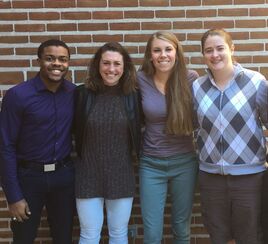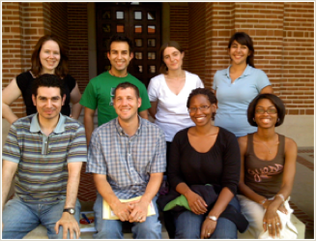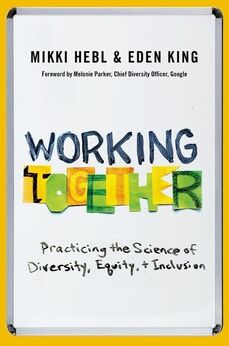The research that I do focuses on issues related to identifying, understanding, and remediating discrimination against members of marginalized social identities including gender, race, sexual orientation, abilities, marital status, pregnancy/parental status, and religion. In our lab, we blend a social, interpersonal perspective and an organizational perspective to investigate discrimination across a wide variety of contexts (e.g., academia, Fortune 500 companies, healthcare). Our research is based on the fact that people express discrimination in a variety of ways from very overt to more subtle ways (Colella, Hebl, & King, 2017). The studies we have conducted show that discrimination that is more subtle is not necessarily less harmful; in fact, research shows that it is not only harmful (Hebl, King, Glick, Singletary, & Kazama, 2007; Madera & Hebl, 2011; Madera, Hebl, & Martin, 2010; Martinez, White, Shapiro, & Hebl, 2015) but sometimes moreso than overt discrimination (Walker, Corrington, Hebl, & King, 2022).
In addition to documenting discrimination, we also focus on ways of remediating this discrimination, the larger goal of our research. We examine a number of remediation strategies at the individual as well as the organizational level. We have and/or are currently examining such individual-level strategies as acknowledgment, compensation, individuation, and adjusting realistic expectations (Morgan, Singletary, Hebl, & King, 2013; Lyons, Martinez, Ruggs, Hebl, Ryan, O'Brien, & Roebuck, 2016; Madera & Hebl, 2009; Singletary & Hebl, 2010). A focus solely on individual-level strategies is problematic, in our view, as it misplaces responsibility for remediation on the already stigmatized individual. Thus, we also examine organizational remediation strategies such as the adoption of friendly climates, setting norms, provision of behavioral scripts, allyship, enhancement of diversity figures within an organizational setting, framing of diversity goals, and mentoring programs (Avery, Richeson, Hebl, & Ambady, 2009; Corrington, Brown, Hebl, Fa-Kaji, & Ng, 2023; Martinez, Ruggs, Sabat, Hebl, & Binggeli, 2013).
As a whole, we are committed to enhancing diversity and capitalizing on its important individual and organizational utilities. For more information, please find publications and links to many of them on my webpage.
In addition to documenting discrimination, we also focus on ways of remediating this discrimination, the larger goal of our research. We examine a number of remediation strategies at the individual as well as the organizational level. We have and/or are currently examining such individual-level strategies as acknowledgment, compensation, individuation, and adjusting realistic expectations (Morgan, Singletary, Hebl, & King, 2013; Lyons, Martinez, Ruggs, Hebl, Ryan, O'Brien, & Roebuck, 2016; Madera & Hebl, 2009; Singletary & Hebl, 2010). A focus solely on individual-level strategies is problematic, in our view, as it misplaces responsibility for remediation on the already stigmatized individual. Thus, we also examine organizational remediation strategies such as the adoption of friendly climates, setting norms, provision of behavioral scripts, allyship, enhancement of diversity figures within an organizational setting, framing of diversity goals, and mentoring programs (Avery, Richeson, Hebl, & Ambady, 2009; Corrington, Brown, Hebl, Fa-Kaji, & Ng, 2023; Martinez, Ruggs, Sabat, Hebl, & Binggeli, 2013).
As a whole, we are committed to enhancing diversity and capitalizing on its important individual and organizational utilities. For more information, please find publications and links to many of them on my webpage.




